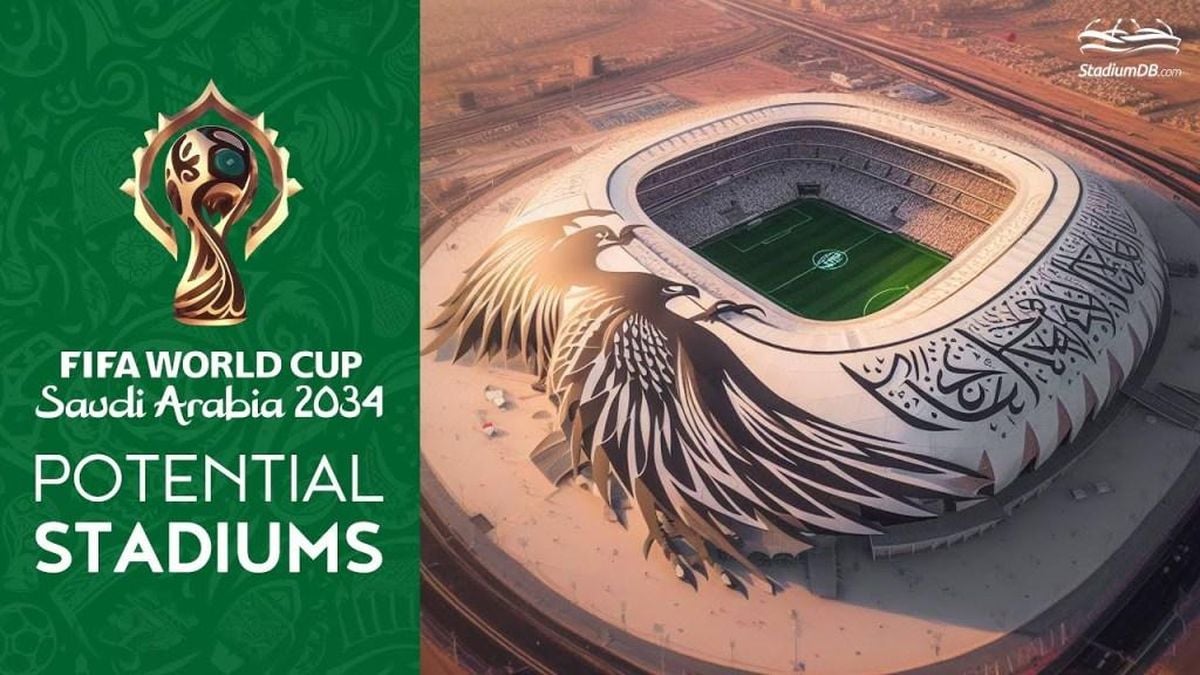
Saudi Arabia’s bid to host the 2034 men’s World Cup is shaping up to be one of the most contentious stories leading up to FIFA’s final vote scheduled for December 11. Following evaluations, the bid has received a “medium risk” rating concerning human rights, stirring significant backlash from human rights organizations and activists. The findings look at the socio-political climate of Saudi Arabia, raising alarms over potential human rights violations, especially concerning migrant workers who are expected to contribute significantly to stadium construction and event facilitation.
The FIFA evaluation, recently published, revealed Saudi Arabia scored 419.8 out of 500 points—a score described as unprecedented when compared to other bids, including those from Canada, Mexico, and the United States for the 2026 tournament. Yet, beneath such impressive scores lies deep-rooted unease about the realities of human rights within the kingdom. Specifically, the report highlights glaring deficiencies related to migrant labor rights, with warnings from Amnesty International signaling potential exploitation and death among workers.
Steve Cockburn, Amnesty International’s Head of Labour Rights and Sport, accurately encapsulates the gravity of the situation: “Fans will face discrimination, residents will be forcibly evicted, migrant workers will face exploitation, and many will die.” This dire warning frames the juxtaposition between ambitious sporting aspirations and the underlying humanitarian crisis.
The FIFA report admits the considerable “effort and time” required for Saudi Arabia to implement significant human rights reforms. Yet it suggests these efforts could lead to positive outcomes, hinting at the possibility of the World Cup being used as leverage for reform. This sentiment echoes the opinion of human rights proponents who view the World Cup as more than just sports but as potential catalysts for positive change within host countries.
Critics, including various human rights organizations, assert the opposite. They argue such promises don’t align with the country’s current practices. Reports of systemic discrimination against LGBTQ+ individuals and oppressive laws on freedom of expression form part of the broader critique against Saudi Arabia’s human rights situation. Amnesty has stated the country’s legislation poses barriers to the full protection and expression of basic human rights.
Among the glaring concerns is the nature of labor reforms. The Kingdom has often been under scrutiny for its treatment of migrant workers—who are integral to many sectors within Saudi Arabia. The recommendations from FIFA’s evaluation seem to suggest reconciliation with these concerns is not only overdue but incredibly complex, requiring substantial political will and reformation.
Notably, there is speculation within the FIFA evaluation about the timing of the tournament. The anticipation of holding the World Cup during winter rather than the traditional summer months stems directly from Saudi Arabia’s brutal summer heat—where temperatures can reach upwards of 40 degrees Celsius during the typical World Cup calendar window.
Further complicity is seen with FIFA’s previous lack of reparative actions following the 2022 World Cup held in Qatar, where worker exploitation drew international condemnation. Just last week, FIFA came under fire from several organizations, including Amnesty, for not providing adequate compensation to workers and families affected by exploitation connected to the prior event. The delayed independent report, released on November 29, 2024, concluded FIFA has responsibility for remedying labor violations linked to the tournament, yet tangible steps toward remedy have yet to be seen—a concerning repeat of history as the organization appears unprepared to confront past mistakes.
Cockburn’s remarks reflect this dilemma stating, “It is incredible… FIFA has sought to keep this independent report hidden for so long.” The underlying skepticism continues to resonate across the statements being made about the forthcoming World Cup bid as pressure mounts on FIFA to be accountable and transparent.
With the December 11 vote looming, the contrasting narratives of ambition and responsibility will undoubtedly clash. The Saudi Arabian government’s commitment to ensuring the tournament is secure and inclusive stands against the backdrop of prior denials and abuses, giving rise to questions about the credibility of any promises made. Active campaigning from various groups is already underway, urging international awareness and vigilance, calling for the sports community to recognize the potential cultural and ethical ramifications of endorsing the Kingdom as the World Cup host.
Without doubt, the successful bid could usher Saudi Arabia closer to the global sporting stage but at what cost? Recent history dictates global sporting events inevitably carry not only the weight of athletic prowess but significant moral responsibility. Such stark realities challenge FIFA to reassess its priorities and the ramifications of its decisions when it casts its vote on December 11. Indeed, whether or not Saudi Arabia is awarded hosting rights for the 2034 World Cup, the conversation around human rights and sports will continue to reverberate long after the final whistle blows.
We always aim for accuracy, but we recognize that errors can occasionally slip through. We value your feedback and are committed to making corrections whenever needed. If you spot a factual mistake in our stories, please let us know, and we’ll address it promptly.
Please use this feedback form solely for reporting factual errors, rather than for sharing personal opinions. We appreciate your help in keeping our content accurate and reliable.
We’ve launched what we proudly call the “Intelligent Journalism” era: a bold approach to journalism that prioritizes verifiable facts, eliminates unnecessary fluff, restores the rigor of classic journalistic principles, and delivers news in a clear, compelling format—all powered by our innovative AI algorithms.
Support Intelligent Journalism with a tip to help us understand the stories you love most, so we can bring you more of what matters!
THE PINNACLE GAZETTE, a platform established by Tree of Evolution LLC, is your premier source for the latest news across a diverse array of topics. Our website offers comprehensive coverage on science, technology, current events, art, and sports, ensuring that you stay informed and gain fresh perspectives.

